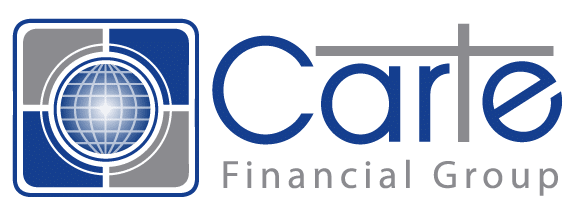There have been significant changes in employment during COVID. Businesses with physical stores mandatorily shut down their physical locations which led to significant layoffs. Corporate offices also had to terminate employees due to the changing financial situation of their business. In addition to changing work conditions due to financial concerns, health and safety have had further implications on employment. Some businesses which don’t enforce safety guidelines force employees to choose between their health and finances. To address these issues, we discussed ‘Job Loss and Employment during COVID’ this week on our Live with our HR expert guest Hilda from Peoplebright.
Trends in employment during COVID:
COVID affected employment in various ways. Businesses laying off workers and reducing the staff hours has created anxiety for employees on their job security. Trying to find other sources of income adds to this stress of trying to stay afloat during this tough time. Even for people who kept their jobs and work from home, there is the added stress of balancing work and family responsibilities. Overall, these changes have led to various mental health issues, which we dove into on our previous Live.
To help their employees financially and mentally, business have taken some steps.
Employers are now more forgiving and conscientious about the mental health of their employees. It has become very normal to see colleagues’ kids in the background during a work meeting and both other employees and employers are more accommodating.
There has also been more understanding in terms of work flexibility. Before the mandated shutdown, some businesses were resilient to let employees work from home with the concern of decreased productivity. However, this expectation didn’t become a reality for some companies. Even with the reopening of stores and offices, hybrid systems of working from home and office are being widely accepted compared to pre-COVID times. This allows employees to work together in the office and avoid isolation while giving them a few days to work from home and cut down on commuting hours.
However, the change is not just for employees.
Business owners also had to adjust to the new normal as they have had more responsibilities to take over than before. With reduced staff, some business owners had to compensate for the lost staff and learn different fields of their work such as inventory, customer service and production.
What financial resources are there to support employment during COVID?
There are government funding and programs available for business owners such as CEBA (Canada Emergency Business Account) and wage subsidy. For employees who lost their jobs or reduced their hours, CERB has been a widely sought resource. If you are currently on CERB which will expire in September, note that the EI program is adjusting to compensate for the expiration of CERB.
What advice can we give to the workforce?
-
-
Be aware of legal procedures and legislations.
-
As a business owner, think of what is important for the business when laying off employees. Decide on what roles are important to keep and how many employees are needed. This will provide trust to your employees and increase their chances of coming back to work after COVID.
Make sure you are aware of employee legislations. Employees might be working overtime which might be against their contracts. To avoid any legal problems such as unintentionally laying off employees against HR laws, you can consult an HR professional who knows about HR laws and policies. Not only they can help address and solve any existing issues, but they also know the best ways to terminate employees to avoid trouble.
-
- Ensure safety in the workplace:
Working frontline jobs has been very stressful in terms of safety. To accommodate, many offices have built protectors and distancing measures. However, some businesses might be lacking safety measures and lose staff members and clients due to health concerns. To avoid losing both clients and employees, increase safety standards at work.
-
-
Invest time in your employees:
-
Since most employees work from home or separately, it has become the manager’s job to find new ways to keep their team connected. Keeping the employees connected through virtual meetings and team activities might help with the mental challenges of isolation and lead to increased productivity.
For business owners, building connections and communicating clearly with employees about how the business is doing and what the needs of the business are as time goes on is highly important. Checking in to see how their team members are doing and leading with empathy is also a key skill a business leader needs. This will not only help resolve their issues and strengthen the team, but it can also increase productivity.
To further ensure productivity in the workplace, making accommodations for family responsibilities and mental health challenges are highly important. There is a growing need for businesses to invest in mental health for the wellbeing of their employees. In addition to mental health services, there also simple ways to give more mental space to employees. Instead of constantly booking meetings with employees to track their progress, checking the results of their work can be just as effective.
We hope you enjoyed reading our blog about ‘Job Loss & Employment during COVID’! To learn more about our discussion, you can check the full live chat here. You can find our live chats and more of the latest financial news on our News Blog. Stay tuned to learn more tips on a new topic each week on our Instagram Live at 5 on Instagram! Aside from our live chats, we post daily financial updates on social media!





More Financial News & Events
Exploring Financial and Emotional Resilience
Mindshift Mastery and Emotional Resilience
Creating a mentor mindset: How to become one or find one
Jan
Legal Financial Fitness: A Comprehensive Checklist for Thriving Practices
Jan
How to Mentally and Financially Prepare for a Layoff
Jan
2023 tax considerations you may have missed
Dec
How to Hold on to More of Your Cash this Holiday Season
Dec
Financial Moves to Make Before Year End
Dec
Navigating Stagflation: Financial Resilience in Uncertain Times
Nov
Buying and selling real estate amidst inflation
Nov
Navigating the Changing Tides: Real Estate, Inflation, and Rising Mortgage Rates
Nov
How does inflation affect your financial plan?
Nov
Caring for aging parents: The journey and lessons learned along the way
Oct
Resources For managing care for Aging Parents
Oct
Talking to Aging Parents About Finances
Oct
Living your best life: Infusing your best life into your your everyday
Oct
Living your best life: Striking the balance between enjoying life now or enjoying it later
Sep
Living Your Best Life: Client Testimonials and Insights
Sep
Unpacking FOMO: Understanding biases, emotions and financial attitudes
Aug
How to overcome FOMO to not overspend this summer
Aug
How to Overcome FOMO on Investments
Aug
What behaviours undermine your ability to build wealth
Jul
How Do You Loose Wealth
Jul
What Does Wealth Building Mean to Our Clients?
Jul
Estate Planning: What You Can Learn From the Mistakes of Celebrities
Jun
Estate Planning For Lawyers
Jun
Estate Planning for Business Owners
Jun
Managing growth for business owners
May
Are you a lawyer with questions on how to grow your investments?
May
Cultivating a growth mindset around money
May
Why financial growth can be deceptive
May
Home and Financial Document Organization
Apr
Business owners, it’s time to start spring cleaning.
Apr
Spring Cleaning Your Finances
Apr
Unique financial challenges female lawyers face
Mar
Taking Action: A Woman’s Perspective on Deciding To Tackle Her Finances
Mar
Is there a gap in your income protection?
Mar
Knowing the difference between Tax Filer and Tax Advisor
Mar
Conquering Women’s Fears Around Finances
Mar
Trends in Family Law
Feb
PART 2: Financial Conversations Couples Need To Have at Different Life Stages
Feb
Financial Conversations Couples Need To Have at Different Life Stages
Feb
Disruption and Reinvention: Starting a Second Career in your Forties
Jan
How to create a strong financial fortress during market downturns
Jan
Creating a Financial Vision Board for 2023
Jan
5 Tips to set yourself up For Financial Success in 2023
Jan
Year-end Donation strategies
Dec
Year-end tax planning
Dec
Getting clients organized for 2023
Combating Quiet Spending
Nov